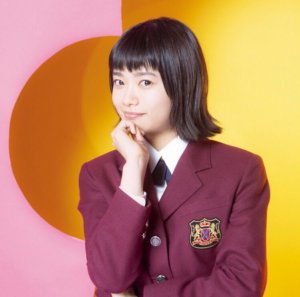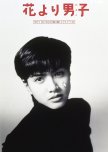
Now on to the story! The movie covers the first seven volumes (Fun fact: only nine volumes of the series had been released at the time). Unfortunately, this also means it covers some of least favorite parts of the manga, the Shizuka Arc and Rui Tries to Steal Domyoji's Girl Arc. I can forgive it though since they only had so much material to work with. My biggest complaint about the story is the rearranging of events (maybe only manga fans will notice), it makes some things not make any sense. And Tsukasa nearly assaults Tsukushi and it's all hunky dory, let's go to the beach time now?! (Atleast in the manga she is noticeably scared to be alone with Tsukasa for some time) That part really should have been left out, instead of Tsukushi and Tsukasa's first 'date'.
I'm not going to comment much on the acting. They were all newcomers at the time with many making their film debut in it. Honestly, the over-the-top acting kind of suits the manga vibes. On another note, the actors playing Akira and Sojiro aren't given hardly any lines! So sad. If you're interested check out the late Koichi Hashizume in Picnic (1996), he really shows off his acting chops in it. And did anyone else notice Shizuka's accent?
Lastly, my personal feelings on this movie. I waited a long time to watch it. It wasn't available online for years. Now it's conveniently located on YouTube. Since then, I've seen it atleast three or four times. I just never get tired of the wacky story and acting or the soundtrack, "Baby's Growing Up," or laughing at Tsukasa's missing shirt. Not the best version of Hana Yori Dango by far, but still entertaining. I recommend to veteran fans of the manga or the other adaptations.
Was this review helpful to you?

This version probably has the most care put into it. Angie Chai, who also produced the original 'Meteor Garden', was very careful about adapting it to a millennial audience while staying true to the manga. It shows. 'Meteor Garden' (2018) by far covers the manga's plot better than all of the others. This is both a good and bad thing. It allows the character's to fully develop, but feels kinda draggy towards the end (the manga has the same effect). It is 49 episodes long after all.
I loved the chemistry between the leads, Dylan Wang and Shen Yue. All of the supporting characters were enjoyable, though some were better than others (>_< ugh Caina). Like the other adaptations before it, this version has its good points and bad points. It's inevitable that 'Meteor Garden' (2018) will be ruthlessly compared to the other versions. I suggest to all fans to check it out since you'll probably like it if you give it a shot.
Was this review helpful to you?
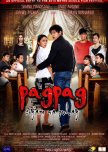
Run-of-the-mill horror flick
I enjoyed this movie primarily for Kathniel (Kathryn Bernardo and Daniel Padilla). As a couple, they are to die for and I will watch any movie with them in it. I believe fans of these two will also enjoy this movie. Otherwise, it is just a typical ghost kills everyone one-by-one movie that every has seen at least once.The one thing that was interesting about it was learning Filipino superstitions regarding wakes, such as not going home directly after a wake. I've never been to one so I don't if there are any such traditions in the US. The story became slightly more interesting after learning the ghost's motivations wasn't just because said teenagers violated a bunch of superstitions.
Was it scary? Eh, no. Lol but I don't believe in ghosts or spirits so these kind of movies rarely scare me. To conclude, horror fans will find this movie basic or forgettable but Kathniel fans like me will be happy to see their favorite pair in something different from their usual rom-coms.
Was this review helpful to you?
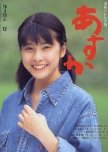
This review may contain spoilers
"Our one piece of a lifetime"
"Asuka" marks the 26th asadora that I've completed and the first for 2025. I'm happy that I saved this one for wintertime since it has weeks dedicated to Christmas and New Years'. For the most part, "Asuka" starts off very strong. Sadly, however, it's ruined towards the middle by an unnecessary love triangle. It does get exponentially better after the love triangle is solved, but it's hard to get back into it after that. This review will mostly be complaints about the storylines I didn't like.The drama is unique in some of its storytelling and structure. It begins in its first week by telling the parents' love story. Kyoko (Konno Misako), whom is set to inherit her parents' confectionary, runs off from her betrothal ceremony to marry the head confectioner Rokutaro (Fujioka Hiroshi) instead. Of course, this is a big no-no in society at the time and leads to repercussions throughout most of the drama. Kyoko was originally supposed to marry the son of Tahei (Kaneda Ryunosuke), an influential man in Kyoto. He seems to enjoy harassing her family and their from then on. I rather liked his antagonistic role in the story, even if it seemed a bit unreasonable at first.
After the parents' love story, we spend five weeks of episodes with Asuka (Enokizono Miho→Takeuchi Yuko) as a child. The aforementioned love triangle is set up here, but not really a problem yet. Asuka's childhood friends are Hayata "Professor" Shunsaku (Asari Yosuke→Fujiki Naohito) and Ayase Mai (Sugimoto Yuria→Sato Hitomi). Mai turns out to be her cousin through Asuka's wayward, often useless uncle Tamajiro (Umezawa Tomio). Asuka and her parents return to Kyoto to help the family's shop. Tamajiro later abandons Mai and her mother Hiroko (Natori Yuko) at the shop as well. Once they have grown up, Asuka decides to become a confectioner like her dad and Mai aspires to be an ordinary office worker.
The love triangle comes in full force when Shunsaku comes to Kyoto for college. I really think this is the worst part of the drama and really makes all the parties involved look terrible. Mai is in love with Shunsaku and knows that Asuka feels the same way. She, however, has no qualms in using her friend's loyalty against and ropes Asuka into helping her get him. Asuka is pushover and lets all of this happen. (I'm sorry but I can't feel bad for her over that.) Shunsaku is obviously in love with Asuka, but willingly goes out with Mai despite his feelings for her not being that strong. (This goes on for WEEKS btw.) Finally, after Mai and Shunsaku are engaged, she learns that Asuka and Shunsaku have been meeting behind her back. Nothing funny is going on, but once you lost trust, it's over. (Not that I cared that much.) Mai, of course, takes this opportunity to act like a complete victim. She starts dating Asuka's now ex-boyfriend Tetsuji (Inoue Charu) and they marry rather quickly. Despite the obstacles being gone, it takes several weeks of episodes for Asuka and Shunsaku to get together.
I already hated Mai before the love triangle if I'm being honest. Her personality is terrible and she's always treating Asuka meanly. Near the end of the drama, she admits that she has always been jealous of Asuka which explains her behavior. However, after everything, I'm not sure how Asuka can even stand to be in her presence. Asuka is not an angel and made some mistakes, but Mai is just a manipulative bitch who only cares about her own feelings. I don't think she gets any better in the latter half of the drama either. As for Shunsaku, I don't understand how Asuka can be in love with such a wishy-washy man. I really rooting for her to be by herself, but asadora heroines always have to get married seemingly.
After abandoning Mai and Hiroko, Tamajiro returns to them several years later. He couldn't make himself successful with any of his ventures and now wants to take over the family business since it's successful. I can't stand this man lol. He's so sneaky in the way he gets control of the business, nearly ruining Kyoko's and Rokutaro's relationship in the process. He too admits to being jealous of Kyoko his entire life. Just, ugh. Tamajiro runs the business into the ground, thanks in part to the 1980s bubble era. (I'll admit that it wasn't 100% his fault, but he should get most of the blame.) Like his daughter, I don't think he ever gets better. On occasion, the other characters can also be annoying (particularly Asuka's parents) because of their stubbornness. However, I think everyone is written very well and true-to-life (even the characters I hate).
Now for the parts I like. First, there's Takeuchi Yuko as Asuka. She's very expressive in the role and I think she's the real saving grace of this asadora. I liked her aspiration of being a confectioner (and I wish the drama had focused on it instead of the stupid love triangle), and her rivalry with her father whose in the same profession. Then there's the themes of family, togetherness, and community.
For some context, "Asuka" was written in the "Lost Decade," a period of time when the economy was really bad in Japan following the "bubble bursting." The 60s, 70s, and 80s are portrayed with a sense of nostalgia for a time when the economy was booming. "Asuka," in part, feels like it was written to comfort people of that time. To show them that there is hope for the future, for the 21st century. I think the context of when it was written/broadcast is more interesting than the drama itself. However, I'm happy that it ends on such a high note and I will look upon the good parts of the drama with fondness.
Was this review helpful to you?

This review may contain spoilers
"I'm going back to the North..."♫
"Amachan" is the 24th asadora that I've watched. I hesitated to watch this one since it's SO popular. My track record with popular asadoras hasn't been so good. Thankfully, I pleasantly surprised with "Amachan" and ended up really liking it. It's an interesting blend of comedy and emotional moments, when asadoras (particularly popular ones) usually go for the big historical dramas. However, it is not without its faults. Warning for small spoilers of the endingNon is really sweet as the heroine Amano Aki, and I liked her 99% of the time. But... She can be annoying sometimes with her denseness and naïvete, which is mostly played for laughs. I would also say that her motivations are kind of weak. She wants to be an ama because she likes diving; she wants to be an idol because she likes singing and making people smile. I understand that this is in fact part of character, but I think her weak motivations is probably why viewers don't like the idol arc of the asadora as much. Anyway... I consider Aki's mother and grandmother, Haruko (Koizumi Kyoko) and Natsu (Miyamoto Nobuko), to be the second and third heroines of this asadora. Their performances are honestly perfect and their stories were executed perfectly. *Chef's kiss* Props also to Arimura Kasumi playing young Haruko.
"Amachan" also has the perfect cast of side characters. I know asadoras are known for their wonderful side characters, but "Amachan" is the first I've watched where I liked everyone. I felt like everyone had a well laid-out personality. Sometimes I have a hard time remembering characters in asadoras, but I never had that problem here. I particularly related to Yui (Hashimoto Ai) who has a slightly twisted personality. Her arc isn't perfect, but I liked how it mirrored both Haruko's and Aki's experiences. Then there's Suzuka Hiromi (Yakushimaru Hiroko), an actress who can or cannot sing? [Lol I loved that they left that ambiguous at the the end.] I really wasn't expecting to like that character so much, but Yakushimaru plays her with the right amount of comedy and divaness. And, of course, there's every townsperson of Kitasanriku which is too many to name, but I will carry them within my heart from now on.
Now a couple of complaints. "Amachan" doesn't have much in the way of romance, which is fine but I've come to expect stronger romances in asadoras quite frankly. Aki's love interest Taneichi is kind of just there, and a lot of the drama around their relationship feels forced. Especially when you think of Aki's age lol, though I guess she really is naive. My other complaint is that the music is repetitive. The opening is instrumental and can kind of feel like you're on an amusement park ride if you watch multiple episodes in a row. "Shiosai no Memory," sung by several characters, is nice but only made an impact once I heard it 10+ times. GMT's "Hometown" song I thought was terrible and I found it hard to believe that it was a hit lol. Other than that, I liked the frequent plugs of old 80s songs and Daikichi singing "Ghostbuster randomly.
A lot of asadoras explore the theme of "hometown," but I think "Amachan"'s exploration of this has become my favorite. Aki doesn't particularly like Tokyo, where she was born and grew up. She instead finds her "hometown" in Kitasanriku, where her grandma lives and her mother grew up. Therefore, your "hometown" is where you love to be and where the people you love are. Aki does return to Tokyo for a year and a half, but ultimately decides to pursue her dream of being an idol in Kitasanriku. Yes, she'll never become a superstar that way, but she'll get to stay in the place she loves with the people she loves. Honestly, I really love this sentiment. "Amachan" easily enters my top ten asadoras. I love it so much, even the idol arc ;)
Was this review helpful to you?
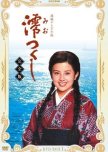
This review may contain spoilers
"Love is a dangerous visitor."
"Mio Tsukushi" is my 21st asadora that I've completed. I started watching it right after the English subtitles were completed over at d-addicts. I really appreciate fansubbers who decide to pick up older asadoras like this one. "Mio Tsukushi" was originally released in 1985 and had very high ratings at the time (next to the very popular "Oshin"). 80s asadoras are similar to modern ones in many ways, though I've noticed that they tend to rely on suspense more often. For example, nearly episode and especially the last episodes of each week end on a cliff hanger. For this reason, I found myself saying "Just one more episode..." time after time (lol). P. S. Major spoilers follow so stop reading here if you don't want to know anything else!The main theme of "Mio Tsukushi" is love and how it effects not just the lovers but those around them. Sawaguchi Yasuko plays the heroine, Kaoru, in her lead debut. Considering she was a relatively new talent at the time, I was very impressed with her performance. Kaoru is the daughter of a soy shop owner and his mistress. She falls in love with fisherman Yoshitake Sokichi (played by Kawano Taro) at the very beginning of the drama. Unfortunately, fisherman and soy shop workers are like water and oil. Furthermore, her father has finally accepted Kaoru into the family register and will not approve of Sokichi. Kaoru tries to forget about Sokichi at first, but their feelings only grow stronger. This section of the drama is my favorite as we watch their relationship develop and the general conflict that arises from those around them. It has a satisfying conclusion as well with Kaoru, despite being disowned, triumphantly marrying Sokichi as the asadora's insert song plays.
The actual part of Kaoru and Sokichi's marriage is less entertaining in my opinion. The question of whether they were going to get married was better than the reality I guess (lol). Now don't get me wrong, there are still some cute moments between the couple. I especially liked their trip to Itako, which gets referenced several times later on. Their romance is cut short when Sokichi goes missing during a storm. After about two years, Kaoru's parents encourage her to remarry. Her new match is Umeki Kensaku (Shibata Kyohei), the head clerk of her father's shop. I really liked Umeki's earnest love and I think it's easy to see why Kaoru would choose to marry him. His jealousy when Sokichi returns alive is also completely understandable. Ultimately, I think both men were good matches for Kaoru though first loves are obviously harder to get over.
Kaoru is, of course, the main character but this asadora sometimes feels more like an ensemble. Many characters are given story arcs away from Kaoru. Of these characters my favorite was hands down Ritsuko (Sakurada Junko), Kaoru's half-sister. Her personality is slowly uncovered and developed over the course of the drama. The ending of her character is pretty sad, but I think fits the tone of the final week. Other great characters are Kaoru's parents, Rui (Kaga Mariko) and Kyubei (Tsugawa Masahiko), her brother Eiichiro (Washu Isao), and mother-in-law Tone (Kusabue Mitsuko). The maid, Ami (Takashi Miyuki), also has a nice, heartbreaking arc. I was really surprised that the writer took the time to complete Ami's arc. The only character I really didn't like was Yataro (Akashiya Sanma). He was supposed to be comic relief, but I really only wanted to slap him.
I'm not knocking off any points for the music. It has a simple melody for the opening, which can get repetitive after hearing 162 times (I'm lazy or I would've skipped it lol). It also has an insert that is played a few times of the course of the asadora. I really liked this one, and I think the tune and lyrics really fit Kaoru as a character.
"Mio Tsukushi" is another asadora I'd recommend. It has strong characters and strong love stories. The final two weeks are hard to get through, but that's expected since it's covering WWII. I liked the open-ended ending to be honest, though I acknowledge that it's not for everyone. It leaves it up to me to imagine what ultimately happens between Kaoru and Sokichi, and I think that's fun.
Was this review helpful to you?
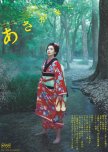
This review may contain spoilers
"First Penguin"
"Asa ga Kita" is the fifteenth asadora I've watched. While watching the last six weeks of episodes, I realized that the story sounded familiar. Naturally, I looked up the woman whom Shirooka Asa (played by Haru) is based on. Her real name was Hirooka Asako by the way. Finally, it clicked and a pulled out the book, "Anne's Cradle: The Life & Works of Hanako Muraoka." This book serves as the basis for the 2014 asadora, "Hanako to Anne," which was also my first asadora. The author dedicates a few pages to Hirooka Asako, whom Hanako met when Asako was in her sixties and she apparently influenced some Hanako's feminist leanings. I'll include this quote by Asako, which influenced Hanako and others Japanese women of the time:"From here on, politics will be crucial. Unless we raise up female politicians active in governing this country, true emancipation for women can never be achieved. We must start by obtaining the right to choose our leaders, the right to vote, just as women in other countries have done. You must work together for the same goal."
Another Japanese feminist, Hiratsuka Raicho, who appears in the final week of "Asa ga Kita," is also mentioned in this biography. I'm including this in my review not just because it's interesting but to highlight that "Asa ga Kita" is one of the more overt feminist asadoras. It doesn't exactly "go there." For example, there's no mention of women's right to vote. And, as much as I wish it had gone there, my hat goes to it for even touching what it does. You could argue that all asadoras are feminist, but in a more sanitized way in my opinion. "Asa ga Kita" highlights the strength, problems, and progress of women during the Meiji era, a much more oppressive time period than when most asadora are set.
Speaking of time period, "Asa ga Kita" begins in 1857 and is set mostly during the Meiji era. This is a very interesting time period for Japan and really laid out the groundwork for what modern day Japan is. Also interestingly, this is the earliest time period for an asadora. (NHK appears to reserve this time period for their taiga dramas instead.) The asadora starts off with traditional kimono and topknots, and by the end there are dresses and cropped hairstyles everywhere. It's an interesting dichotomy and serves as a good example for the changes of the era. Moving on from history...
The best part of "Asa ga Kita" are the characters, of course. Haru plays the pioneering businesswoman Shirooka Asa, a tomboy who questions why women can't learn. Miyazaki Aoi plays her sister Hatsu, a traditionally feminine girl with a hidden strength. Hatsu is often the secondary main character, but the narrative smartly recognizes when her story isn't as interesting as Asa's and we won't see her for a while. Nevertheless, we follow her throughout her life and her romance with her husband Sobei (Emoto Tasuku) is very compelling. Next, we have Asa's husband Shinjiro, a man who prefers to indulge in his various hobbies instead of participate in the family business. Even though, he sounds like a "useless" man, he is played perfectly by Tamaki Hiroshi, giving him both humor and humanity. As a husband, he is always supportive of Asa which only makes him more endearing.
Asa's and Shinjiro's only daughter, Chiyo (Koshiba Fuka), comes off as very annoying at first, being the opposite of Asa but also not seeing the value of someone like Asa. I thought she was going to fall into the trap of other asadora children at this point. Thankfully, the writers have here come to appreciate Asa though Chiyo remains the complete opposite of her nonetheless. The final character I'd like to talk about is Godai Tomoatsu (based on a real figure and played by Dean Fujioka. He is what every second male lead should be. Someone who doesn't impose his feelings on the FL and just supports her from afar. Honestly, he had my heart beating fast at certain points. There are a plethora of other side characters who are all endearing in their own way.
"Asa ga Kita" surprisingly has four romantic couples to get invested in. Asa and Shinjiro are the best of course and are now my favorite asadora couple ever. Hatsu and Sobei are super sweet together despite their rough start. Kisuke and Fuyu seem kind of mismatched but I couldn't help rooting for them. I was a bit sad that Fuyu doesn't appear again after their marriage, but I suppose that Kiyohara Kaya (see Natsuzora, Okaeri Mone) just appeared too young at the time. Lastly, there's Gansuke and Ume, a couple that doesn't need to be together to know that they love each other. Honestly, I felt very spoiled with the amount of couples in this one.
Okay, this review is getting to long so let's wrap it up. "Asa ga Kita" includes everything you could want in an asadora and then some. I recommend this to old and new asadora watchers alike. (I hope I didn't spoil it too much.) If you're looking for a next watch after this one, I recommend the 2024 asadora "Tora ni Tsubasa" which explores similar feminist ideas as "Asa ga Kita" but in a more "in your face" way. Happy watching!
Was this review helpful to you?
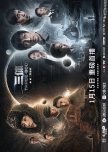
A word-for-word adaptation
I read "Three Body Problem" earlier this year in preparation for the Netflix adaptation being released (though I haven't seen it yet since I'm waiting for my dad). I discovered that there was already a Chinese drama based on it and decided to check it out, though Chinese dramas aren't usually my favorite. I really wanted to like this drama since it got such good reviews on here... but the last five episodes almost killed me from boredom.What I didn't like:
1) The drama is essentially a word-for-word adaptation of the book. While I appreciate the production sticking close to the book, it got boring pretty quick once I realized that I was just *watching* the book this time lol.
2) The character of Mu Xing was added for the production and was just a plot device. They stuck so close to the book that they had a hard time actually adding anything new.
3) They removed the *MOST* pivotal scene from the book, probably because of censors. This is unfortunate as I think it justifies Wen Jie's actions a bit more, though thankfully doesn't mess with it too much.
4) The editing is strange like most Chinese dramas. It has to be shot almost like a movie so the episodes are kind of cut weird, particularly in the episodes where characters are telling long stories. The sound editing was also not up to par
What I did like:
1) The characters are given more personality than in the book. I've read others say that Liu Ci Xin's characters are a bit bland and I'm inclined to think the same. This drama thankfully gives more insight into characters like Wang Miao, Ding Yi, and Yang Dong.
2) The acting by everyone is fairly competent though Chen Jin and Wang Zi Wen deserve extreme praise for their role as Ye Wen Jie. They made me look forward to the backstory episodes even if the story became somewhat meandering.
3) I really liked the two scenes that set up the next season featuring "The Dark Forest" protagonist Luo Jie. I'm really looking forward to it since I think that book is a lot better than the first one.
4) The music was surprisingly really good and perfectly set the tone of the drama.
I recommend this drama to those who love sci-fi but have not read the book. Those who have read the book will not get much out of this sadly. I will watch the sequel if and when it is released. I think it has better potential than this one. I'm giving it a 7.5 because I did think it was worth watching for me personally and it was able to get across the ideas in the novel with simplicity.
Was this review helpful to you?
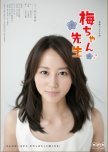
This review may contain spoilers
"I'm Ume which will blossom even in the cold"
"Umechan Sensei" is my twelfth asadora and what a delight it was. [I've been very lucky with my last three picks; let's hope this continues~.] This asadora is set in Tokyo just after WWII like "Natsuzora," which I had just finished. It follows Umeko (played by Horikita Maki) as the somewhat hapless heroine of the story as she embarks on journey to becoming a doctor. Umeko is just a wonderful heroine. She's kind and warm, and her haplessness allows for some very funny moments. It's fun to watch her gradually develop into a responsible adult and get further in career, though her core character always remains. Her development also mirrors the redevelopment of Tokyo and Japan post-war.Besides Umeko, the other highlight of this asadora is the supporting cast. My personal favorite is Takahashi Katsumi as Umeko's father, Kenzo. He such a grump and a bit scary at first, but you eventually realize that he's just a teddy bear inside. My favorite moment of him is in the very last episode. Then there's Umeko's siblings Takeo (Koide Keisuke) and Matsuko (Mimura Rie), who both have their own arcs in the story. Umeko's mother (Minami Kaho) and grandmother (Baisho Mitsuko) could have had more to do in the story, but I loved them nonetheless. There's a part with Umeko's mother late in the asadora that I especially loved. And, of course, there are Umeko's classmates, colleagues, and neighbors. So many good characters that I can't name them all lol.
Interestingly, Umeko has two love interests which feels a bit rare for an asadora, especially because I couldn't tell who she was going to pick until it happened. I actually really liked both of them. One of them is fellow doctor Matsuoka Toshio (Takahashi Mitsuomi). He's just a fun character with his analytical way of thinking which often puts him at odds with others. His and Umeko's break-up was sad but I think fits with his character. The "real" love interest is Umeko's neighbor and childhood friend Yasuoka Nobuo (Matsuzaka Tori). He kind of goes under the radar for much of the asadora though he and Umeko have a couple of "moments" early on. Nobu starts to really shine once Matsuoka leaves. There were some really romantic scenes between him and Umeko, such as the proposal scene. Nobu also gets nearly as much character development as Umeko.
"Umechan Sensei" is a great asadora from start to finish. It becomes a little slow near the very end, but the final episode closes out perfectly so I'll forgive it. Some of my few complaints are that Umeko's siblings aren't given much to do once their arcs are finished, Yayoi's and Yamakura's story isn't finished [it appears that it continues in a special episode which I can't find :(], and I wish that the narrator was present more often. These are very minor complaints though. I'd recommend "Umechan Sensei" to anyone as I think this is a very appealing asadora to beginners and veterans alike.
Was this review helpful to you?
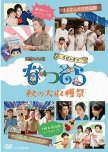
Natsuzora Spin-off: Aki no Dai Shukakusai
1 people found this review helpful
This review may contain spoilers
A fun watch but easily skippable
Popular asadoras will occasionally receive a spin-off special after they finished airing. "Natsuzora" is one of those popular ones, which is no surprise if you've seen it. These specials rarely get subbed by fansubbers so I'd like to think ECOTV Subs for taking their time to sub it. You can join their live journal to access the subs.The special is split into two stories. The first focuses on Toyo Obaa-chan's voice acting adventure in Tokyo. As unrealistic as it was, I think a fun time was had by all and I did cry at the end. The second is about the "Tokachi's Wives Bragging Contest." Basically, the men of Tokachi have to profess their love for their wives in the contest. It mostly focuses on Yukijiro and Yumiko, whom have a marital spat at the beginning of it. I thought it was funny that Kikusuke suddenly had a wife out of nowhere, but his song actually made me cry. Does this drama just make me emotional? Lol.
My sole complaint about this special is that Natsu isn't in it much. However, I will concede that her reduced role probably helped the side characters have some nice shining moments. I recommend watching this if you really liked "Natsuzora" because it's nice to revisit this world once more. I will admit that you're not missing much if you decide skip it. It feels like those extra chapters in shojo manga after the final chapter. It's nice to know what the other characters are doing, but not necessary.
Also, the special includes a top ten scenes that were popular on social media and three unaired scenes. This was a nice touch and rewatching these scenes again made me cry (again lol). An interesting note that Natsu and Jii-chan essentially are hosts for the special. There's a running bit with Jii-chan declaring that he's not dead. Funnily enough, in the last scene with Jii-chan in "Natsuzora" I hadn't realized that that was him dying (lol). The special makes it clear that he's dead T_T.
Was this review helpful to you?
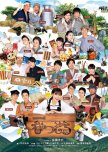
This review may contain spoilers
Pioneering Spirit
"Natsuzora" is the eleventh asadora that I have watched. It is the culmination of last five asadoras that I have watched. To explain: "Natsuzora" is the landmark 100th asadora to air. As such, NHK invited a bunch of past asadora heroines to make appearances from supporting to minor cameos. I watched "Oshin," "Dondo Hare," "Dandan," "Manpuku," and "Chiritotechin" specifically for this reason while I had already watched "Jun-chan no Ouenka." (I would've watched more but these are the only ones with English subs currently.) Watching these aren't really a prerequisite to watching "Natsuzora," especially since some of the actresses have a blink and you'll miss it cameos. Personally, I think fully immersing myself in the asadora format for the pass few months helped me really enjoy "Natsuzora."Now that being said, I think "Natsuzora" is actually the perfect first asadora for someone just beginning to watch. It has all of the elements that people like particularly in an asadora with wonderful animation segments to boot. Just watching "Natsuzora" would give someone the perfect impression of what an asadora is supposed to be.
Hirose Suzu as Natsu is a great heroine and wonderfully nuanced. Natsu, I believe, is one of the few asadora heroines to be an orphan. This creates some great drama with her finding her siblings which runs throughout the drama. "Natsuzora" also boasts a great supporting cast with Kusakari Masao as "Jii-chan," Natsu's adoptive grandfather, being the standout. I particularly seeing Yamaguchi Tomoko (from "Jun-chan no Ouenka"), Higa Manami (from "Dondo Hare"), and Kanjiya Shihori (from "Chiritotechin") now in supporting roles. Then there were the actors I recognized from "Hana Yori Dango" productions, Nakagawa Taishi, Matsushima Nanako (also an asadora heroine from "Himawari"), and Fujiki Naohito. A quick glance at the cast list and I see a lot of people from previous asadoras. Honestly, NHK went all out with the casting.
"Natsuzora" carries the theme of the "pioneering spirit" shown with the dairy farmers of Hokkaido and later with Natsu entering into the new animation industry. Eventually both intersect when Natsu has the opportunity to work on an animated series reminiscent of the "World Masterpiece Theater" anime series (and specifically referencing "Heidi, Girl of the Alps"). Interestingly, Natsu is based on the animator Okuyama Reiko but I would say very loosely, particularly in regards to her early life. Natsu's love interest is based on Ghibli director Takahata Isao and there's even a reference to his masterpiece "Grave of the Fireflies." There's a handful of others also based on real-life people.
Watching "Natsuzora" felt like receiving a warm hug. In many ways, it reminded me of my first asadora "Hanako to Anne." Both asadoras gave me the feeling of wanting to stay in that world full of characters that I love dearly. Somehow, it's harder to stay things about a drama I really liked. I just really hope that more and more watch this asadora as it's very close to being perfect.
Was this review helpful to you?
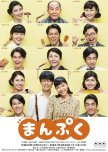
This review may contain spoilers
"As long as we're alive, there's hope"
"Manpuku" is the ninth asadora that I've completed so far. I'd actually downloaded and started this drama early on during this journey, but I ended up putting it on hold because I was tired of WII stories at the moment. Week 2 was also surprisingly heavy for this asadora being mostly a comedy. I was able to pick it back up pretty easily and honestly the WII part wasn't as long as I was expecting. "Manpuku" was also one of the asadoras I watched for "Natsuzora" as Sakura Ando has a small voice cameo in it. Another note: Sakura Ando previously appeared in my [thus far] favorite asadora "Ohisama."Now on to the meat and potatoes. "Manpuku" is one of those "couple" asadoras, meaning that a couple are the lead characters instead having just a female lead. As such, I think the drama has a very different flavor to most other asadoras. Fukuko (Sakura Ando) doesn't have an aspiration like the traditional asadora heroine. Instead, she's there to support her wacky inventor husband Manpei (Hiroki Hasegawa). I don't think this is actually a bad thing but it's not what people are typically expecting from an asadora. As a couple, they're very cute together though Manpei irritates me a bit. While it's obvious how much he needs Fukuko, it's not exactly obvious why Fukuko needs him. But I suppose there's no logic in love [lol]. Anyway, what I'm trying to say is that the dynamic is one-sided. I've heard similar complaints about "Gegege no Nyobo" [which I haven't watch], and ironically Nao Matsushita appears in both.
"Manpuku" is a fictionalized account about the inventor of instant ramen, Momofuku Ando. Everyone has eaten instant ramen and, being American, I didn't know for a long that there was a different way to eat ramen. I wasn't immediately sold on this premise, but I was surprised how I invested I got once we finally got around to it (a little over halfway through I believe). The process of inventing something was shown in the previous asadora "Hanbun, Aoi," but "Manpuku" really goes into it and several times over since Manpei gets involved in numerous endeavors. If you can believe it, I shed some tears at the end over the invention of Cup Noodles.
As for the side characters, my favorite is Fukuko's mother, Suzu-san (Keiko Matsuzaka). I love her so much. She in my opinion has the best comedic moments in the drama, particularly when she's paired with Fukuko or Manpei. The rest of the cast was also great, but by the last few weeks it seemed that the writers were unsure of what to do with them. For example, Fukuko's niece Taka (Yukino Kishii) graduates from college during the eight-year time skip but simply becomes a housewife and mother afterwards. There's nothing wrong with being a housewife but I just thought it was boring that we only see her and her mother Katsuko (Nao Matsushita), Fukuko's sister, just sitting around the TV. I also have a small complaint about Taka's sister, Yoshino (Mai Fukagawa). They made a big deal about which man she was going to marry, but didn't show it playing out. Instead, they just revealed it randomly after the final time-skip.
All-in-all, I don't have many complaints about "Manpuku." I think it's a solid comedic asadora and just an all-around good time. Not *the* best, of course. It's a little towards the end, and Manpei and Fukuko have just a few too many hardships. However, I believe most asadora fans will enjoy this one and it being a comedy makes it easy for a beginner to watch. A final bit of trivia: "Manpuku" ends in 1971 and mentions the Osaka world's fair and the previous asadora "Hanbun, Aoi" begins in 1971 and also mentions the world's fair.
Was this review helpful to you?
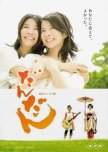
This review may contain spoilers
"Song of Life"
"Dandan" is my eighth asadora thus far. I chose it because of the twin angle as well as Mikura Mana appearing in "Natsuzora," which I'm planning to watch soon. "Dandan" has a harsh score of 6.7 on MDL. To be fair, it's only been rated by eleven people but it doesn't feel very balanced. "Dandan" isn't bad; it's just not the best asadora anyone has every seen.The premise for this asadora is basically "The Parent Trap" so it's a bit derivative. However, I enjoyed this sort of "reimagining" of the premise and it was initially what hooked me into watching it. Two girls, Megumi (Mikura Mana) and Nozomi (Mikura Kana), meet by chance as if fate is pulling them towards one another. Megumi is an ordinary high school student living in Matsue, while Nozomi is a maiko (apprentice geisha) living in Kyoto. I think both girls have interesting, realistic reactions to finding out that their twins. Some of their family members reactions may seem harsh, but I also think it's realistic from the point-of-view of Japanese culture.
Megumi initially wants to become a professional singer, but then lands on deciding to be a caretaker [i.e. looking after the elderly at retirement homes]. She moves to Kyoto to go to college and starts living with Nozomi and their mother (Ishida Hikari). Ironically, this not only knocks Nozomi off her life's course, but also the story. After a lot of badgering from Ishibashi (Yamaguchi Shogo), the girls become twin singers in the same vein as The Peanuts (if you've seen Mothra, you know them). Strangely, their time as actual singers is very short compared to the build-up. Megumi almost immediately disbands the duo as soon as it grows in the wrong direction. Nozomi tries for a while on her own, but eventually goes back to being a maiko. As such, this whole middle section of the drama ends up feeling pointless.
The last section of the drama was what they should've been doing with the whole dram in my opinion. Megumi decides to become a nurse on top of a caregiver. Her love interest, Ishibashi, also leaves music and decides to become a doctor. Nozomi goes from being a maiko to a geisha. Her love interest is her former bandmate and manager, Kota (Kuboyama Tomohiro). His earnest admiration of her and willingness to watch to support her from afar is just sweet. I would've rather watch more of this even if it had the twins being in separate cities for most of the time.
Honestly, even the singing career path had its potential. What I'm frustrated with is the noncommitment to either storyline. "Hanbun, Aoi" comes to mind since it had a similar problem, but it was able to stick the landing better in my opinion thanks to the supporting cast. "Dandan" has some lovely side characters, but two of the male characters are particularly frustrating. Additionally, while I did cry, it wasn't able to hit all of those emotional notes I love so much in the last week.
Now that I'm done complaining. I will talk about its good points. Mana and Kana are wonderful as the heroines, though I preferred Kana's Nozomi to Mana's Megumi. Both heroines are played beautifully nuanced and I loved how their facial expressions perfectly encompassed their characters feelings at any given time. The female side characters were almost all amazing. I loved them all. I particularly found the girls' grandmother (Mitsubayashi Kyoko) to be poignant at this time for me. The girls' mother (Ishida Hikari) and Megumi's mother (Suzuki Sawa) were also stand-outs. And finally, the best point of the asadora is the music. It was all so good from the theme song to all of the songs that the girls sing throughout. "Ue o Muite Aruko," "Akai Sweet Pea," "M," etc.
So, in conclusion, I would argue that "Dandan" is worth watching, especially if you're an asadora enthusiast. I probably wouldn't recommend it to a beginner because it won't hook them in immediately. I enjoyed my time with this asadora and I will be singing the music it introduced me to for a long time.
Was this review helpful to you?
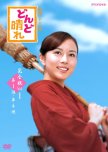
This review may contain spoilers
A place to go back home to
"Dondo Hare" is the seventh asadora that I've completed. I first chose it at random since it was one of several asadoras I currently have downloaded on my computer. I was also curious about watching a "modern" asadora (i.e. one taking place around the year it aired). I then noticed that the lead actress appears in "Natsuzora," which is the 100th asadora and references older asadoras. That's when I really committed to watching it (I'll be watching "Dandan," "Chiritotechin," and "Manpuku" next for the same reasons). "Dondo Hare" was a surprisingly easy watch, excepting a couple of the storylines. I was really able to just breeze through it.The drama follows Natsumi (played by Higa Manami) as she trains to become a proprietress for a traditional Japanese inn, called Kagamiya, which her fiancé Masaki (Uchida Asahi) decides to take over. Masaki's aunt Tamaki (Miyamoto Nobuko) is the current proprietress and wants her son Shinichi (Azuma Mikihisa) to take over. However, the head proprietress Katsuno (Kusabue Mitsuko) wants Masaki instead. This family conflict pushes the plot forward for the majority of the drama.
The first two weeks of "Dondo Hare" set up the drama well. I really liked the weeks that follow since it had a slice of life vibe as every week had different guest for Natsumi to help. The tone shifts, however, when Natsumi's meddling causes her to quit her training. Of course, she goes back but the tone never returns to what it was. From then, there seems to be a series of neverending problems for Natsumi or the inn. At one point, the poor girl has two "rivals" to contend with. The drama's best feature is its sense of family and I wish it had focused on that instead of just throwing one problem after another at them.
Natsumi is a good heroine and her characterization helps the drama when the writing gets weaker. Her naivete may be a tad annoying at sometimes, but (like the drama says) her ability to "believe" in people is also her strong point. She seems like the typical hard-working, bright smile heroine at first. Natsumi, however, is not just that and shows a wide-range of genuine emotion. Her and Masaki's relationship could've been stronger. Since they were engaged before the story starts, it feels that the writers phoned them in just a bit. Instead Natsumi's relationships with Katsuno and Tamaki are much more interesting and nuanced. I also just want to add that I liked all of the supporting characters. Everyone at the inn felt like a family.
Now in conclusion, I recommend "Dondo Hare." It's not the best asadora, of course. But it's a fun, easy watch. I got tired of the constant troubles, but Natsumi makes these times easier to get through. The final week of episodes could've had more happiness, instead of hastily trying to wrap up the final conflict. The very final episode, however, was worth it. I definitely cried T_T At the end, I felt just as attached to Kagamiya as all of the characters. It felt like (as the drama says) a place to go home to.
Was this review helpful to you?
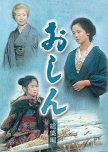
This review may contain spoilers
"A mother's worries are never over."
"Oshin" is the sixth asadora that I've watched. Like "Ohisama" and "Hanako to Anne," it has been on my radar for a long time. It's considered a classic after all. But, like most people, I thought the 297 episode count was daunting. However, after I decided to go all in with asadora dramas, I knew I wanted to watch "Oshin" early on in this journey. How I approached "Oshin" was that I watched in sets of 2 to 3 weeks at time and then switched to watching "Ohisama" for 2 to 3 weeks. I obviously finished "Ohisama" first with this method. I think this helped "Oshin" feel less daunting at times and helped keep my interest up, instead of giving me burn-out.The structure of "Oshin"'s story is similar to "Ohisama," being presented as older Oshin (Nobuko Otowa) telling her life story to her grandson Kei (Goro Ohashi). There is an extra layer of mystery as we as an audience are unaware of why she has suddenly left home for her nostalgia trip. The reason is not actually revealed until the final two weeks of episodes.
The first few weeks of "Oshin" covers Oshin's tough childhood during the Meiji period. She is played by an unforgettable young actress Ayako Kobayashi. Many of the lessons she learns during her childhood will be brought up continuously throughout the rest to the drama. Personally, these episodes are kind-of hard to watch. Oshin is the daughter of a sharecropper and sent out to work at only seven-years-old. After several bumps in the road, she finds employment at Kaga-ya. Here we finally meet some supportive adults and Oshin makes a lifelong friend in Kayo (Terumi Azuma). The story then skips to when Oshin (now played by Yuko Tanaka) is sixteen and meets her first love Kota (Tsunehiko Watase), an advocate for the farm labor movement who is constantly hounded by the police. These are the three most important characters of the story.
It will take too long to summarize the rest of the story so I'll just talk about some of the characters. Oshin's husband, Ryuzo (Shiro Namiki), is one of the most frustrating characters I've encountered in fiction. But this series has a lot of similarly frustrating characters: Oshin's father, her son Hitoshi, her mother-in-law Kiyo, her daughter-in-law Michiko, her brother Shoji, and her sister-in-law Tora. The writer, however, does something really interesting with all of these characters. She makes you dislike them so much that you're just wishing that they worse will befall them, but then she'll find a way for you to sympathize with them. These characters also make it easy to appreciate the nice people like the people of Kaga-ya, Oshin's hairdressing teacher, the yakuza member Ken, Ryuzo's servant Geneimon, and Kota's aunt Hisa. I love all of these people.
A little less than half-way through the drama, Oshin was at her in-laws in Saga. This storyline went on for a long time and is hands down the hardest part to get through. I took several breaks during this time and I recommend doing the same. This part sets a lot of context for when Oshin herself becomes a mother-in-law and adds a great bit of irony.
The latter half of the drama (when Oshin is played by Nobuko Otowa) is probably my favorite. I was finally able to relax and just watch Oshin set up her supermarket business. Her son Hitoshi was admittedly annoying, but he's surprisingly layered as a character. Her other children were great for the most part. I will say that the constant changing of actors as these characters aged was a bit confusing. They should've stuck with the old age make-up and grey hair. Kota's actor is never changed by the way; he just gets a mustache that turns greyer with time lol.
I had a great time watching this, even with all of the hard-to-watch parts. Asadora dramas are a truly a unique viewing experience. I've never quite felt like I knew characters so well. The story starts when Oshin is seven and then ends when she is 83 with very few time skips. An amazing epic drama. I see why it's considered a classic, especially within the context of the 1980s. For modern viewers, I encourage to exercise caution unless you're interested in different cultures and time periods. This is not like asadora dramas of today and may have a lot of things you don't like. Compared to something like "Hanako to Anne" (same time period), "Oshin" is a harsh watch.
Was this review helpful to you?

